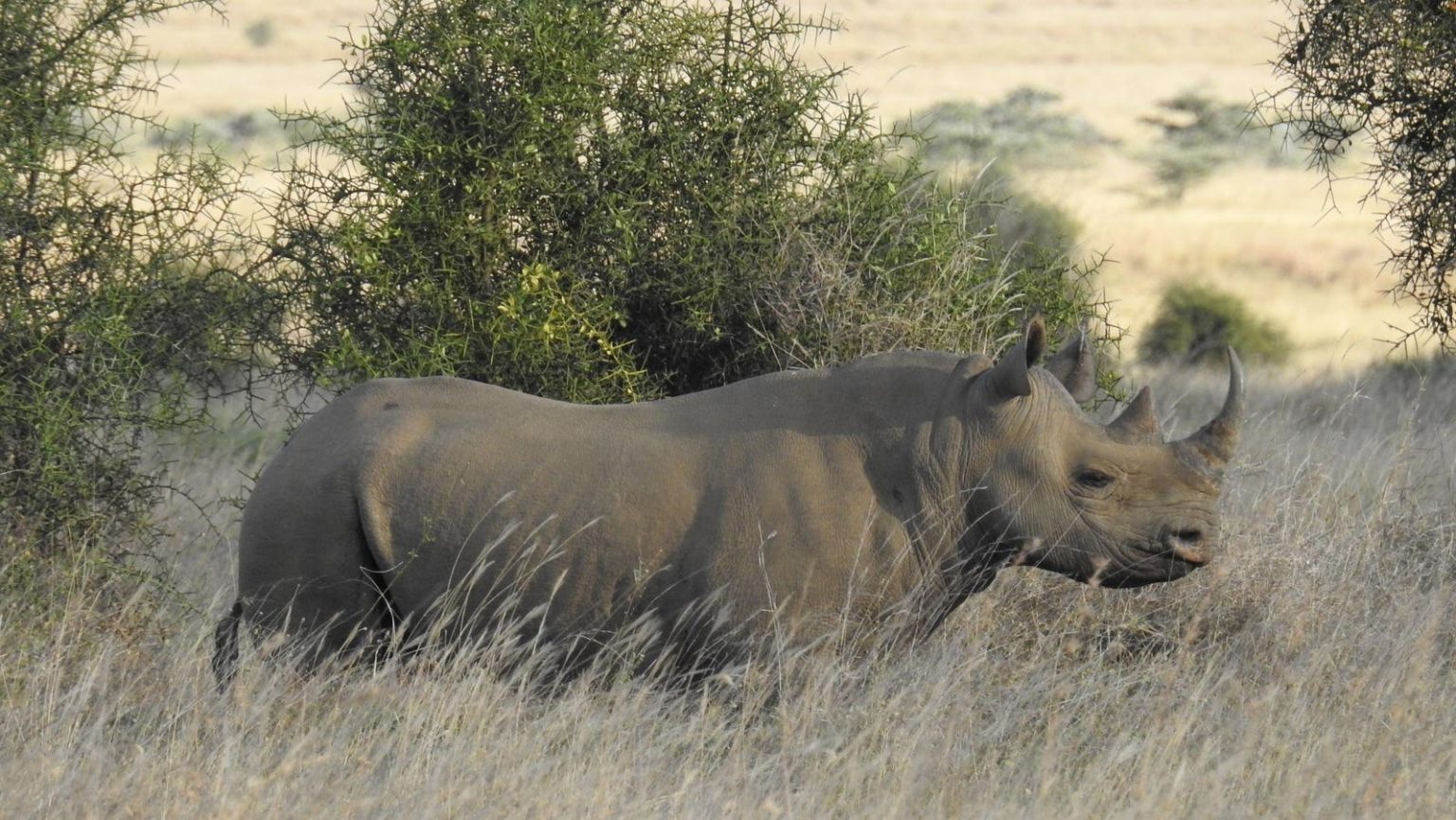In Kenya, conservationists were thrilled to spot a critically endangered baby rhinoceros alive in the wild months after it was last seen. The baby rhino was first suspected to have been born in the remote Chyulu Hills National Park when rangers discovered small animal tracks alongside adult rhino prints in October. Camera traps were set up to confirm the birth, and within a month, video footage of the calf with its mother was captured. Despite a period of uncertainty, the calf was eventually spotted on camera again, bigger and still alive.
According to Jeremy Goss of Big Life Foundation, who works to protect African wildlife, the second round of footage showed that the calf is growing well, indicating a good chance of survival. The Eastern black rhino population is relatively small, with just over a thousand individuals in the wild, making the birth of a new calf a significant event. The resident rhino population in Chyulu Hills increased from seven to eight with the birth of this calf, which is believed to be around 6 months old. The gender of the calf has yet to be determined as it has only been seen on video so far.
Big Life Foundation and the Kenya Wildlife Service work together to protect wildlife in over 1.6 million acres of wilderness in the Amboseli ecosystem, where the Chyulu Hills National Park is located. The Eastern black rhino is primarily found in Kenya, but also in Tanzania and Rwanda. Conservation efforts are crucial to ensure the survival of this species, as they are classified as critically endangered by the International Union for the Conservation of Nature, facing high risks of extinction in the wild.
The population of Eastern black rhinos has faced significant declines in the past due to habitat loss and illegal poaching, with demand for rhino horns leading to a 95% reduction in Africa’s rhino population. Conservation efforts have led to an increase in the population of Eastern black rhinos from fewer than 400 in the 1980s to 1,002 in 2017. Efforts are also being made to transport Eastern black rhinos born in European zoos back to their natural habitats in Africa, as seen with a recent birth filmed by Chester zookeepers.
Despite the challenges faced by the Eastern black rhino population, the birth of a new calf in Chyulu Hills National Park is seen as a positive contribution to the species’ survival. Conservationists continue to monitor and protect the rhinos in the area, working to ensure their safety and well-being. The sight of the baby rhinoceros alive and growing well in the wild gives hope for the future of this critically endangered species and highlights the importance of ongoing conservation efforts to protect wildlife in Kenya and beyond.


